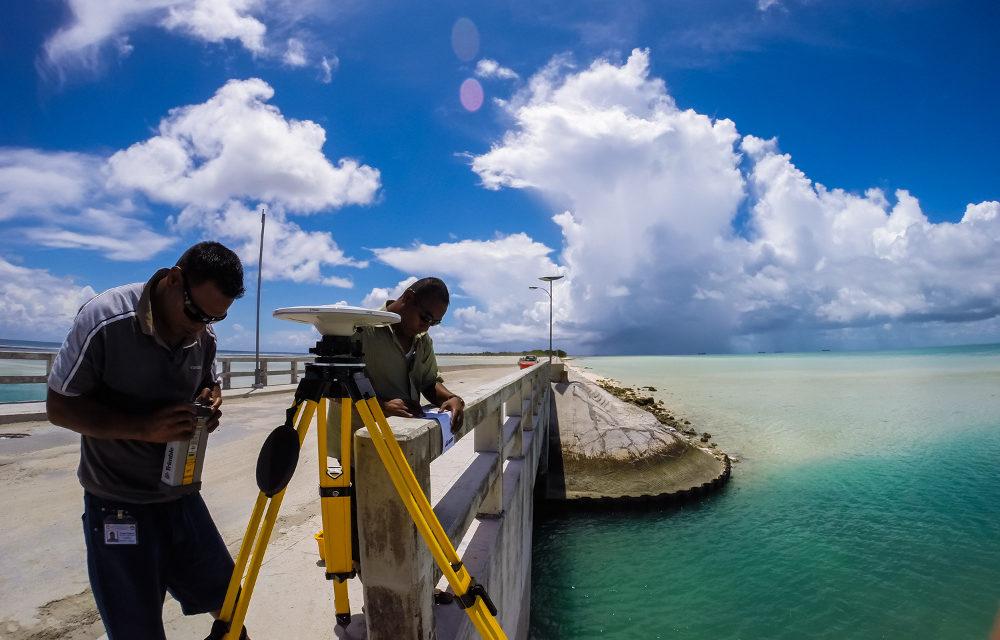Regional ocean science experts are in Cook Islands this week as part of a major initiative to strengthen the understanding and application of climate, ocean and sea level information in the Pacific Islands region.
The Cook Islands Meteorological Service has called upon the Pacific Community (SPC) to assist in hosting and facilitating an Oceans and Tides Workshop which opened in Rarotonga yesterday.
“Ocean and tides have a major influence on many key economic sectors in the Cook Islands, from tourism and shipping to pearl farming and subsistence fishing,” the Director of the Cook Islands Meteorological Service, Arona Ngari, said.
“The Cook Islands Met Service is keen to improve and further develop our services for these marine stakeholders.”
Through the Australian Government-funded Climate and Oceans Support Program in the Pacific (COSPPac), participants in the week-long workshop (14-18 November) will receive practical training from ocean science experts on sector-specific applications of ocean information and online tools, including tide calendars, tide gauge data, and the COSPPac Ocean Portal.
The Ocean Portal provides updated information on sea surface temperature, wave forecasts, surface current forecasts, coral bleaching alerts, and seasonal sea level variations, in addition to hosting near-real time tide gauge data from 14 sites across the region, including Avarua Harbour in Rarotonga.
“It’s so important to get ocean-oriented stakeholders around the table to highlight the information they need to make informed decisions about disaster risk management, climate change adaptation, conservation, and coastal infrastructure investments in Cook Islands,” SPC’s Manager of Oceans and Coastal Geoscience, Jens Kruger, said.
“It’s also an opportunity to gain insights about the role of coastal and ocean waters in sustainable development at the national level,” Mr Kruger said.
Hosted at the Cook Islands Meteorological Service office, the workshop will be attended by Met Service staff, as well as representatives from Ports Authority, the National Environment Service, Marine Resources, the Ministry of Transport, and local environmental non-government organisations (NGOs), among others.
Topics covered in this workshop include tides, shipping and maritime safety, marine resources, the Pacific Sea Level Monitoring Project, and coastal hazards to name a few.
A similar workshop was held last November in Solomon Islands and the next Oceans and Tides workshop is scheduled for early next year in Marshall Islands.
COSPPac is managed by the Australian Bureau of Meteorology in partnership with SPC, Geoscience Australia, the Secretariat of the Pacific Regional Environment Programme (SPREP), and the University of the South Pacific (USP), and is a key component of the Australian Government’s support to Pacific Island countries in adapting to and mitigating the impacts of climate variability and change.
Media contacts:
Pacific Community (SPC), Molly Powers-Tora, Climate and Oceans Regional Officer, Geoscience Division, E: [email protected] or Tel: +679 862 9655
Evlyn Mani, Capacity Development & Communications Officer, E: [email protected] or M: +679 8010768
Australia’s Department of Foreign Affairs and Trade (DFAT), Merewalesi Nailatikau, Senior Manager, Media and Communications, E: [email protected] or Tel: +679 7071 258
Useful links:
COSPPac website
COSPPac Ocean Portal
About the Pacific Community and the Government of Australia:
The Pacific Community (SPC) is the principal scientific and technical organisation in the Pacific region, proudly supporting development since 1947. Australia is both a founding member and important development partner.
The Government of Australia and SPC bring together their respective intellectual and technical resources to support Pacific Island countries and territories to realise their development aspirations. The Climate and Ocean Support Program in the Pacific (COSPPac) project is one example of this collaboration.
Since it launched in 2012, COSPPac has worked to build the capacity of Pacific Island Meteorological Services and other relevant agencies to understand and apply climate, ocean and sea level information for the benefit of island governments and communities.
